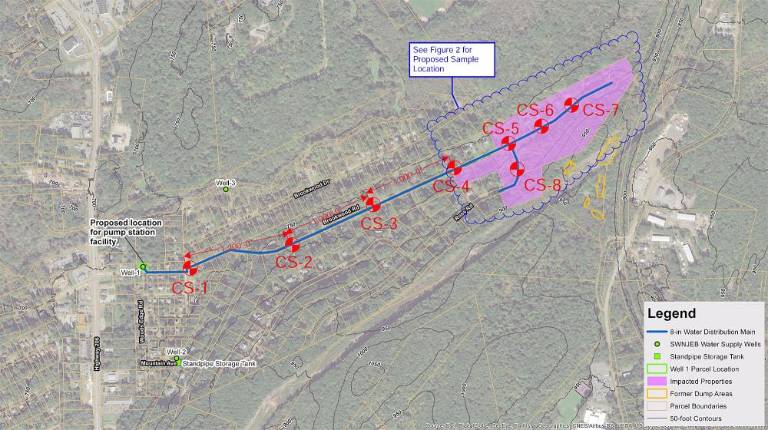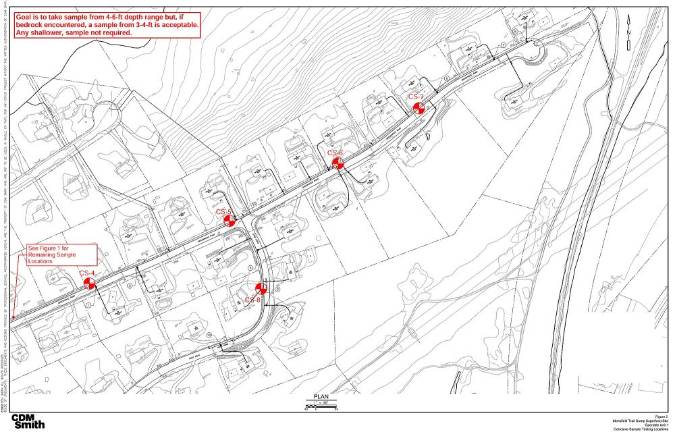EPA to start work on waterline that will supply houses in Mansfield Superfund neighborhood
Byram. The site has contaminated groundwater from former dump areas at the top of a ridge west of the Stanhope-Sparta Road north to Cowboy Creek.


The U.S. Environmental Protection Agency (EPA) will be installing a waterline to supply houses near the Mansfield Trail Dump Superfund site in Byram Township.
The site has contaminated groundwater from former dump areas at the top of a ridge west of the Stanhope-Sparta Road north to Cowboy Creek. The contamination has affected residential portable wells on Brookwood Road and Ross Road.
In September 2017, the EPA decided to remedy the problem by providing the neighborhood with public water through the installation of a waterline.
Eight soil borings will be installed along the waterline’s path on Brookwood and Ross to collect samples that will determine whether the soil will corrode the pipe.
At each location, a two-inch borehole will be drilled to six feet deep. The soil samples will be retrieved to ground surface and sampled.
The open borehole will be filled then sealed with a cement and bentonite mixture or bentonite pellets. The ground surface or asphalt road will be repaired to the conditions that existed before the contamination, to the extent possible. Any mud tracked onto the paved areas will be cleaned, ruts will be graded, and the disturbed grass area will be seeded.
The site restoration will be performed to the satisfaction of the township inspector, according to the EPA.
The drilling operation, including equipment, personnel and supporting vehicles, may occupy up to half the width of the road, the EPA said. Orange cones, signs, and physical barriers will be placed around the working area.